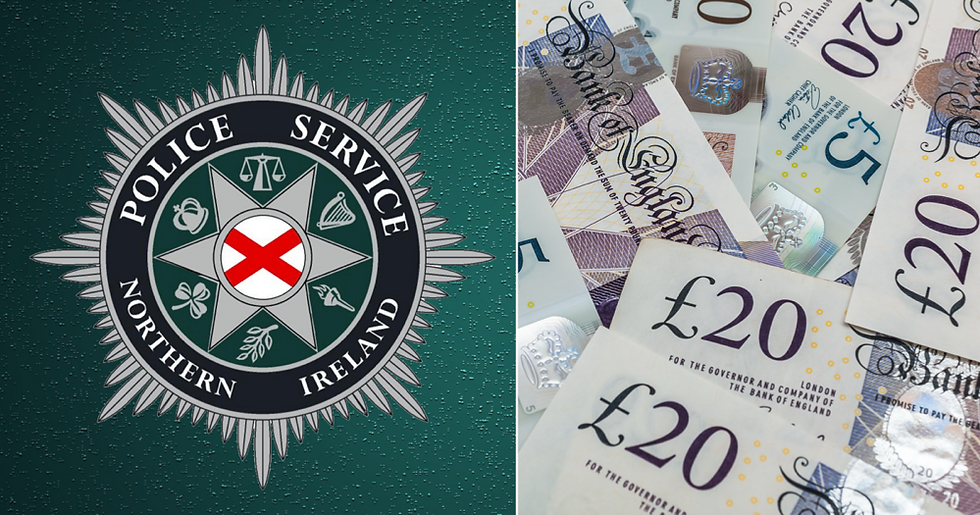New sexual offences legislation extends protections to victims
- Mar 19, 2022
- 3 min read

Justice Minister Naomi Long has welcomed the passing of the Final Stage of the Justice (Sexual Offences and Trafficking Victims) Bill today in the Northern Ireland Assembly.
Minister Long said:
“The delivery of this new legislation offers greater protections to vulnerable people in our communities and will make a significant difference to those who suffer abuse and exploitation.
“Since my appointment as Justice Minister, I have focused on ensuring that our laws offer the best protection they can to the most vulnerable in our society.
“This legislation, in conjunction with the significant new safeguards that I have already brought forward in this mandate in the Domestic Abuse and Civil Proceedings Act 2021 and in the Protection from Stalking Bill, represents a coherent approach to address important gaps in our current legislation and breaks new ground in several critical areas.
“Importantly, each of the Bills, both individually and collectively contribute to the Executive’s wider approach of protecting women and girls, recognising that, unfortunately, most victims of these types of crimes tend to be female.”
The Justice (Sexual Offences and Trafficking Victims) Bill has two core aims:
to enhance public safety by implementing certain elements of the Report of the Gillen review of serious sexual offence cases and from a review of the law on child sexual exploitation and sexual offences against children; and
to improve services for victims of trafficking and exploitation.
Naomi Long continued:
“This Bill includes the creation of several new offences: non-fatal strangulation, up-skirting and down blousing, cyber-flashing, and masquerading as a child online. It also addresses a number of issues affecting the experiences of victims in the justice system, including the exclusion of the public from all serious sexual offence court hearings.
“It also closes gaps in the law that offenders try to exploit, by abolishing what is known as the rough sex defence and further tightening of legislation relating to the unwanted disclosure of private sexual images.
“Where previously women and girls may have found it difficult to have their complaints in these areas taken seriously, I am confident that the Bill will give them greater protection from those who seek to blight lives through their offending behaviour.”
NASUWT the Teachers’ Union has welcomed the passing of the Justice (Sexual Offences and Trafficking Victims) Bill in the Northern Ireland Assembly. The union especially welcomes the extension of the offence of voyeurism to include up-skirting and down blousing.
Dr Patrick Roach, NASUWT General Secretary, said:
“The NASUWT welcomes the passing of the Justice (Sexual Offences and Trafficking Victims) Bill in the Northern Ireland Assembly today.
“The NASUWT has been campaigning for several years to have up-skirting and down-blousing to be made specific offences and believe that these provisions, which will be the strongest in the UK, will help protect women and girls whether they are in the workplace or elsewhere
“The success in our campaigning to protect women and girls couldn’t have been achieved without the brave testimony of those who have suffered abuse at work.
“The NASUWT put on record our thanks to our members for speaking out on this issue which has helped to ensure that this activity is recognised in law as a specific criminal offence.”
Justin McCamphill, NASUWT National Official Northern Ireland, said:
“Having worked with the victims of this conduct over several years, we know that they will be pleased that the law on voyeurism has now been extended to protect women and girls from upskirting or downblousing.
“When the legislation was first introduced the union raised concerns that the Bill as first drafted would have required evidence that the person acted for the purposes of obtaining sexual gratification or humiliating, alarming or distressing the individual.
“The legislation makes it clear that if a person operates equipment under another person’s clothes and is reckless as to whether the other person is humiliated, alarmed or distressed they can be convicted of an offence.
“The union wishes to thank all those who drafted the legislation and gave evidence which supported our case but a special word of thanks is due to Clare McGlynn, Professor of Law at Durham University for her support during the campaign.








